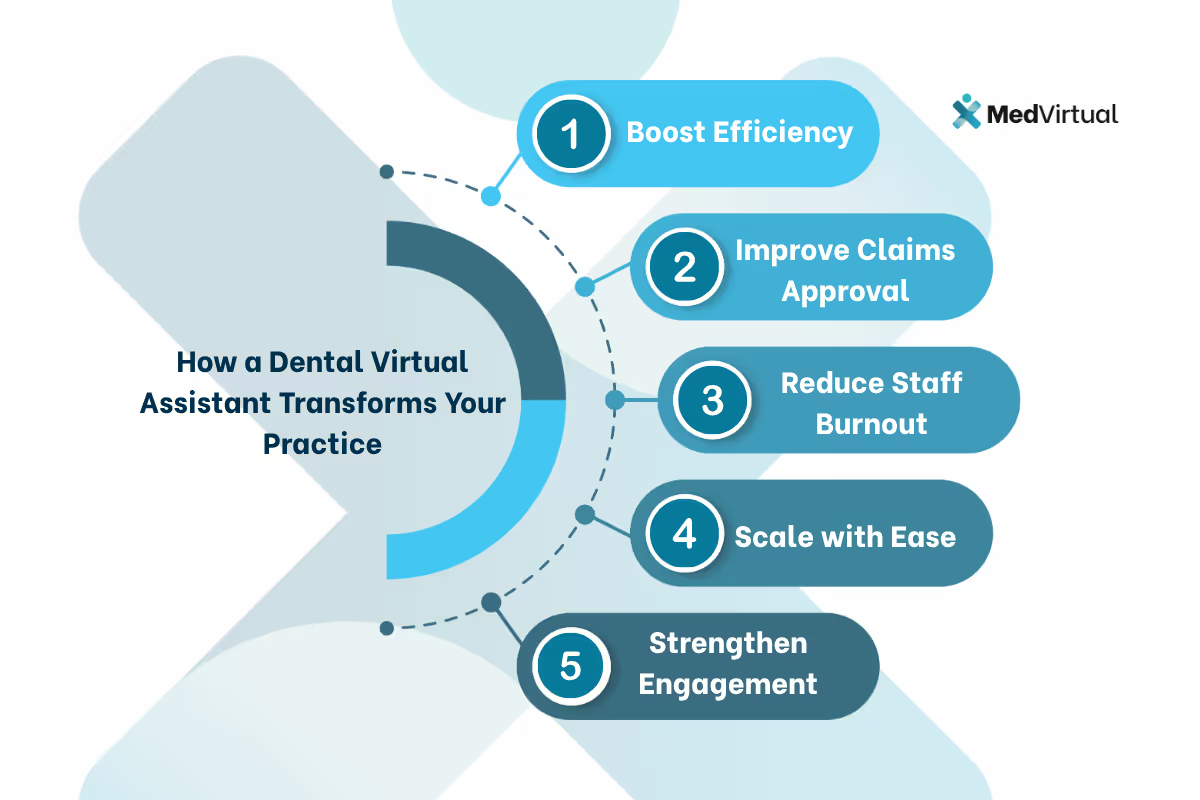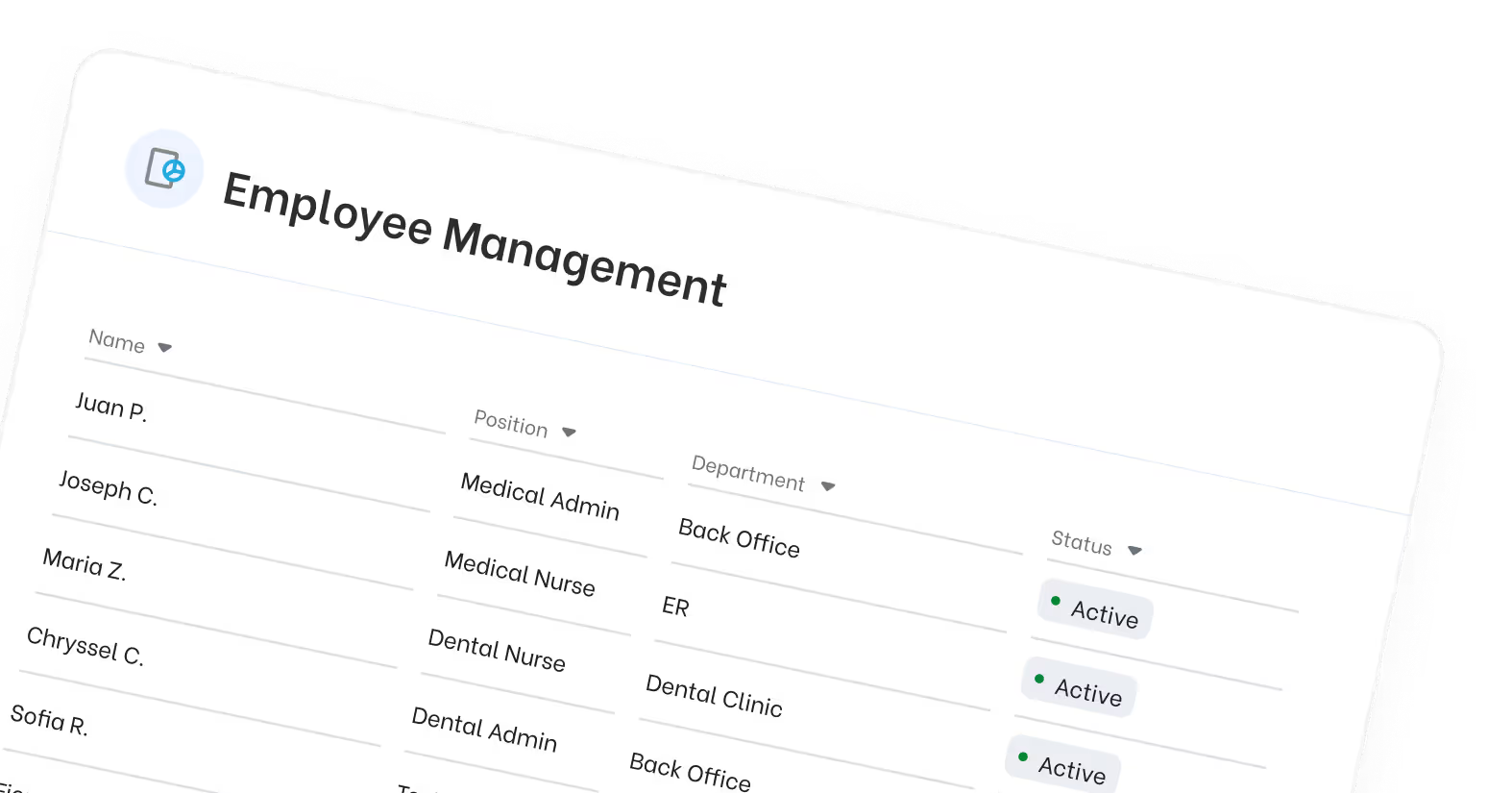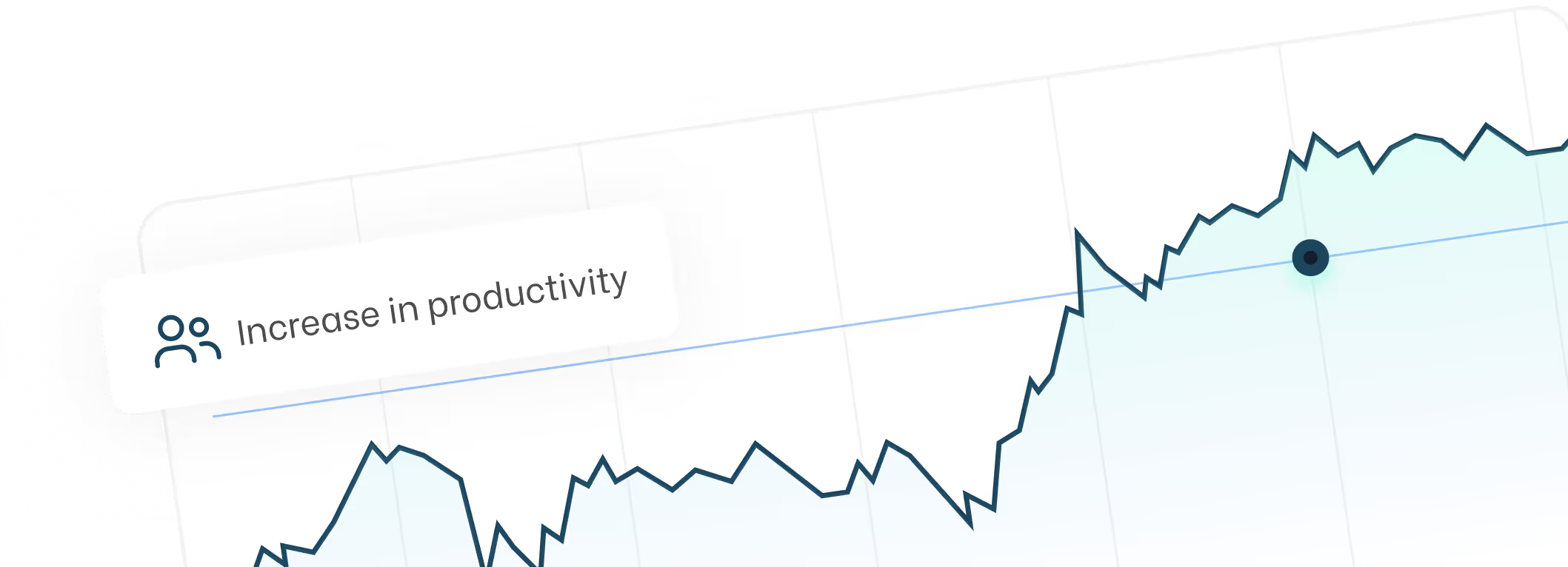Transform Your Dental Practice with a Dental Virtual Assistant in 2025

Introduction: Why Dental Practices Need Virtual Assistants Now
Dental practices today juggle more than patient care; they also have to handle insurance claims, scheduling, charting, patient follow-ups, billing, and administrative overhead, all of which vie for time. The pressure on front-office staff is immense, and any inefficiency directly impacts patient satisfaction and practice profitability.
A dental virtual assistant (DVA) can relieve that burden. By delegating workflow tasks to a remote, trained specialist, your in-office team can focus on clinical care and patient experience.
In 2025, the best DVAs operate not as distant contractors, but as seamless extensions of your practice with compliance safeguards, domain knowledge, and efficient integration.
In this post, we’ll show how a dental virtual assistant can transform your practice, which features to demand, and spotlight MedVirtual as an example of what excellence in dental virtual assistance should look like.
What Is a Dental Virtual Assistant?
A dental virtual assistant is a remote professional specifically trained in dental practice workflows, terminology, compliance, and systems. Services typically include:
- Appointment scheduling and patient reminders
- Insurance verification and claims processing
- Treatment plan follow-ups and patient communication
- Charting support, clinical documentation, and digital record updating
- Billing support and accounts receivable follow-ups
What makes a Dental Virtual Assistant different from a general Virtual Assistant is domain specialization: they understand dental codes, common procedures, insurance norms in dentistry, and can coordinate with clinical staff. The best DVAs integrate with your practice management software and follow best practices in patient privacy, security, and regulatory compliance.

How a Dental Virtual Assistant Transforms Your Practice
1. Boost Efficiency and Reduce Bottlenecks
Front-desk tasks often slow down patient flow. A DVA can handle scheduling and reminders, freeing up in-office staff to focus solely on patient care.
2. Improve Insurance Turnaround and Claim Approval
DVAs trained in claims nuances reduce denials by verifying coverage upfront and managing follow-ups, leading to faster reimbursements.
3. Reduce Staff Burnout and Overhead
By offloading administrative tasks, your full-time staff can focus on high-skill duties. There's no need for extra office space, benefits, or equipment for remote assistants.
4. Scale Without Breakdowns
As your patient volume fluctuates, you can scale DVA hours up or down. You avoid hiring or laying off local staff.
5. Strengthen Patient Engagement and Recall
Consistently following up with patients, reminding them of checkups, or handling post-op communication builds loyalty and improves retention.
What to Look for in a Top Dental Virtual Assistant Provider
When selecting a provider, here are key criteria to demand:
- Dental domain experience ask for past client examples in dentistry
- Compliance & privacy safeguards HIPAA training, secure access, audit logs
- Integration capability compatibility with your dental management software
- Scalability & flexibility ability to scale up or down without friction
- Transparent performance metrics turnaround time, error rate, retention
- Onboarding & training support shadowing, process documentation, and continuous review
A provider like MedVirtual exemplifies these features: they emphasize domain-specific training (including dental), structured onboarding, measurable KPIs, and secure systems from day one.
Provider Spotlight: MedVirtual for Dental Practices
Why MedVirtual is an Ideal Dental Virtual Assistant Partner
MedVirtual offers dental-focused virtual assistance with robust compliance and operational support. Our model includes:
- Screening and placing assistants with dental industry familiarity
- Secure remote access with role-based permissions and audit trails
- Flexible arrangements: part-time, full-time, or hybrid models
- Performance tracking: metrics like scheduling speed, error rates, claim denial reduction
- Continuous training on evolving dental protocols, compliance, and software
Dentists who engage with MedVirtual report smoother workflows, fewer administrative bottlenecks, and measurable improvements in billing and collection cycles within months of onboarding.
Trends in Dental Virtual Assistance (2025)
- Hybrid AI + human workflows: automated scheduling and reminders, overseen by human DVAs
- Growth in teledentistry support: DVAs managing virtual consult requests, follow-ups, and patient triage
- Vertical specialization: DVAs specializing in orthodontics, periodontics, or pediatric dentistry
- Emphasis on certification & compliance: providers securing ISO/SOC audits in addition to HIPAA
- Performance-based contracts: dental practices demanding SLAs tied to claim denial rates or recall conversion

Make 2025 the Year Dental Admin Work Becomes Invisible
Dental practices no longer need to let operational tasks weigh down their staff. A skilled dental virtual assistant can become your practice’s secret weapon, optimizing throughput, reducing denials, and improving patient engagement.
Choosing a provider like MedVirtual, which emphasizes dental domain experience, compliance, scalability, and performance metrics, ensures your investment pays dividends in efficiency, satisfaction, and growth.
Let 2025 be the year your dental practice transforms.
Frequently Asked Questions
1. How do I know a dental virtual assistant is secure and compliant?
Any reputable DVA provider must enforce HIPAA training, encrypted systems, role-based access, and regular audits. For instance, MedVirtual’s assistants adhere to strict compliance protocols with controlled system access and documented logging to protect patient data and maintain practice integrity.
2. What kind of dental software can a virtual assistant work with?
DVAs should support major dental practice management systems (e.g. Dentrix, Eaglesoft, Open Dental). MedVirtual trains its assistants in common dental platforms and coordinates with your office to map workflows and data access securely and efficiently.
3. Will a DVA really reduce front-office workload?
Yes. By transferring tasks like scheduling, claims follow-up, patient reminders, and chart updates, DVAs relieve the burden on in-office staff. Dental practices using MedVirtual report fewer bottlenecks, smoother patient flow, and staff refocused on clinical care.
4. Can a DVA help with insurance denials and follow-ups?
Absolutely. A well-trained DVA checks insurance eligibility before treatment, flags coverage gaps, submits claims correctly, and follows up on denials. MedVirtual’s assistants actively monitor denial patterns, appeal when needed, and drive reimbursement efficiency.
5. How quickly can I start using a dental virtual assistant?
After selecting a provider and aligning workflows, onboarding can begin in days. Providers like MedVirtual employ shadowing and phased ramp-up so the DVA can learn your systems without disrupting daily operations.






